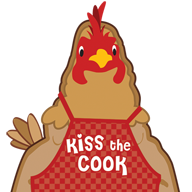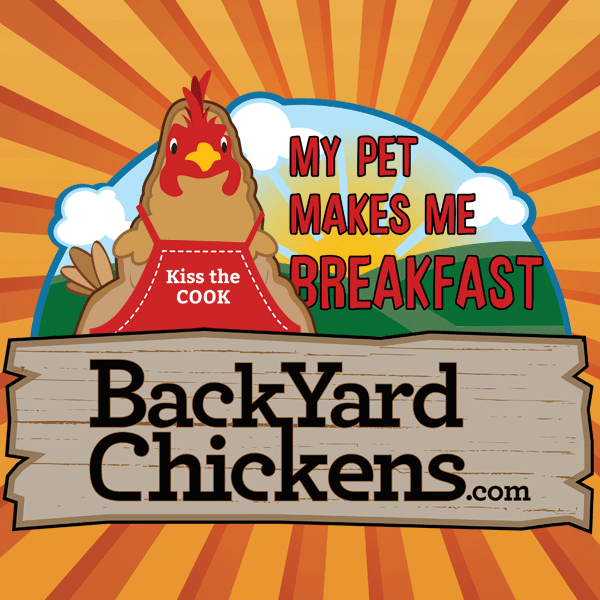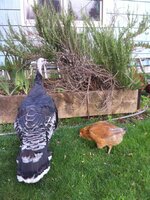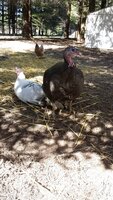I have a couple Royal Palms and a midget white turkey hen. Black Spanish are very pretty birds.
Since you know the genders, I am guessing they are not brand new chicks, so they should know how to eat ... and fly!

Do you have chickens or other poultry? Their care requirements are quite similar to chickens. So if you have any previous experience with chickens, turkeys won't be too hard to figure out.
If you don't have any experience, Backyard Chickens is a good site for general poultry info and questions:
Does your pet make you breakfast? Tips & Tricks for raising chickens, building chicken coops, & choosing chicken breeds + ask questions in our community forum

www.backyardchickens.com
Lots of experienced (and not so experienced) poultry people use that site, so chances are really good that if you have a question, someone else has already asked and answered it.
There's a lot of info to cover if you are brand new.
Regarding your questions, my turkeys are free-range, so most of them choose to roost really high up in fir trees. The rest of the turkeys with either sleep on top of our chicken coop or with our chickens on home-made roosts constructed from two-by-fours. Each roost is 4 inch wide and six feet long, elevated off the ground. You want to provide enough space so everyone has room to find a spot without too much crowding ... and then expect them to ignore half the roosts and all try to crowd onto the highest available one.

For toys, I am not aware of any toys marketed for turkeys. Personally, I don't worry too much because I figure they can find their own amusement. They roam where ever they like and spend most days hunting for insects or hanging out in the trees. For enrichment, they get fun snacks occasionally, like corn on the cob or a treat ball. Pretty sure that from a turkey's perspective, food is the best toy. Not to sell them short, but turkeys probably don't need the same level of mental stimulation as a parrot. I've seen them get confused by a chain-link fence that they have seen every day of their lives and completely forget that they can just fly over it. It is hard to be a turkey.

Gamebird pellets are the usual recommendation for turkeys. But keep in mind, most turkeys are kept for food, not companionship. Your birds needs might be different, especially if you plan on keeping them longer than one year. When turkeys are young and growing, they need plenty of protein. Look for gamebird starter pellets, if you can find them. For adult birds, you might consider switching either to gamebird maintenance, a general purpose flock raiser pellet, or an egg layer formula, depending on the age and nutritional needs of your poultry. Like chickens, turkeys are opportunistic omnivores and will eat a wide range of food items, if offered or allowed to free-range. Most commercial feeds are grain-based. You can provide supplemental veggies, weeds, and healthy table scraps, as desired. A source of supplemental calcium is recommended for hens.








